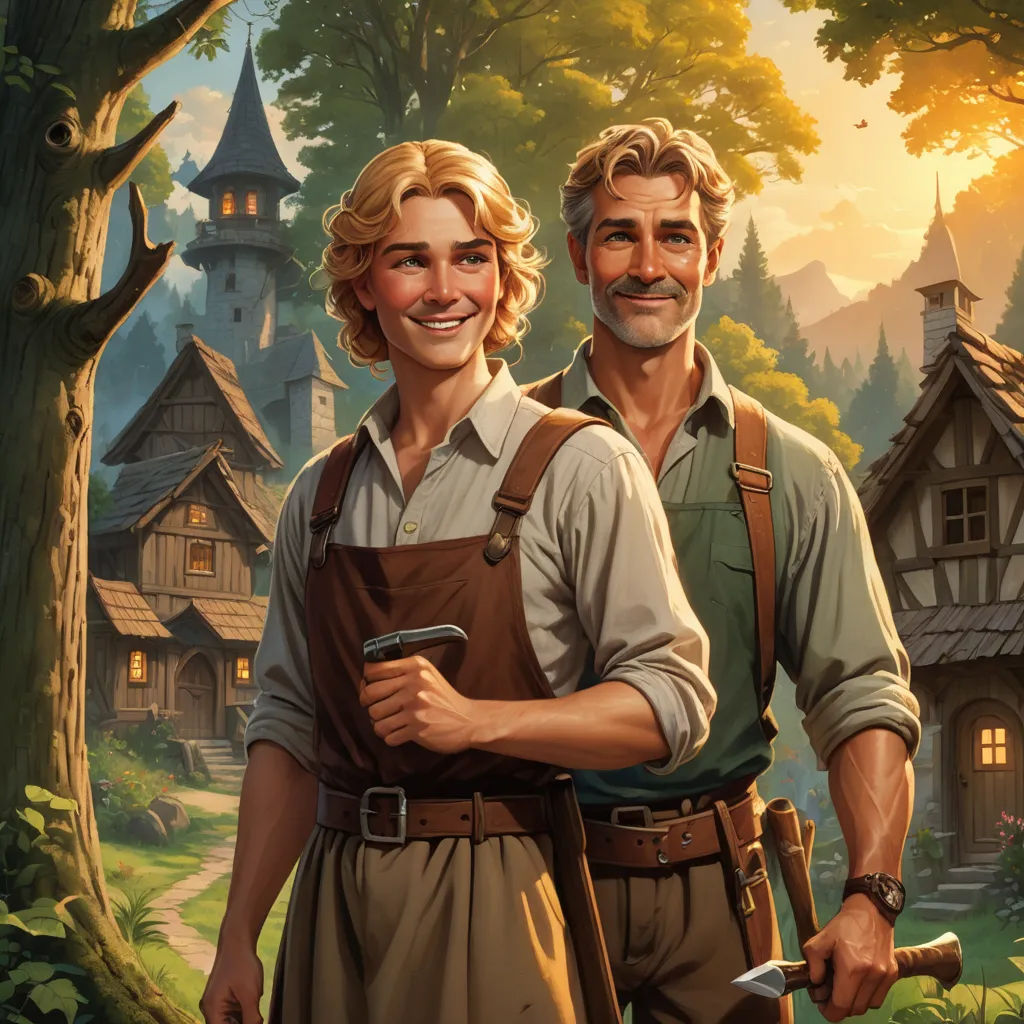
The Woodcutter and the Fairy
By K V

28 Feb, 2024
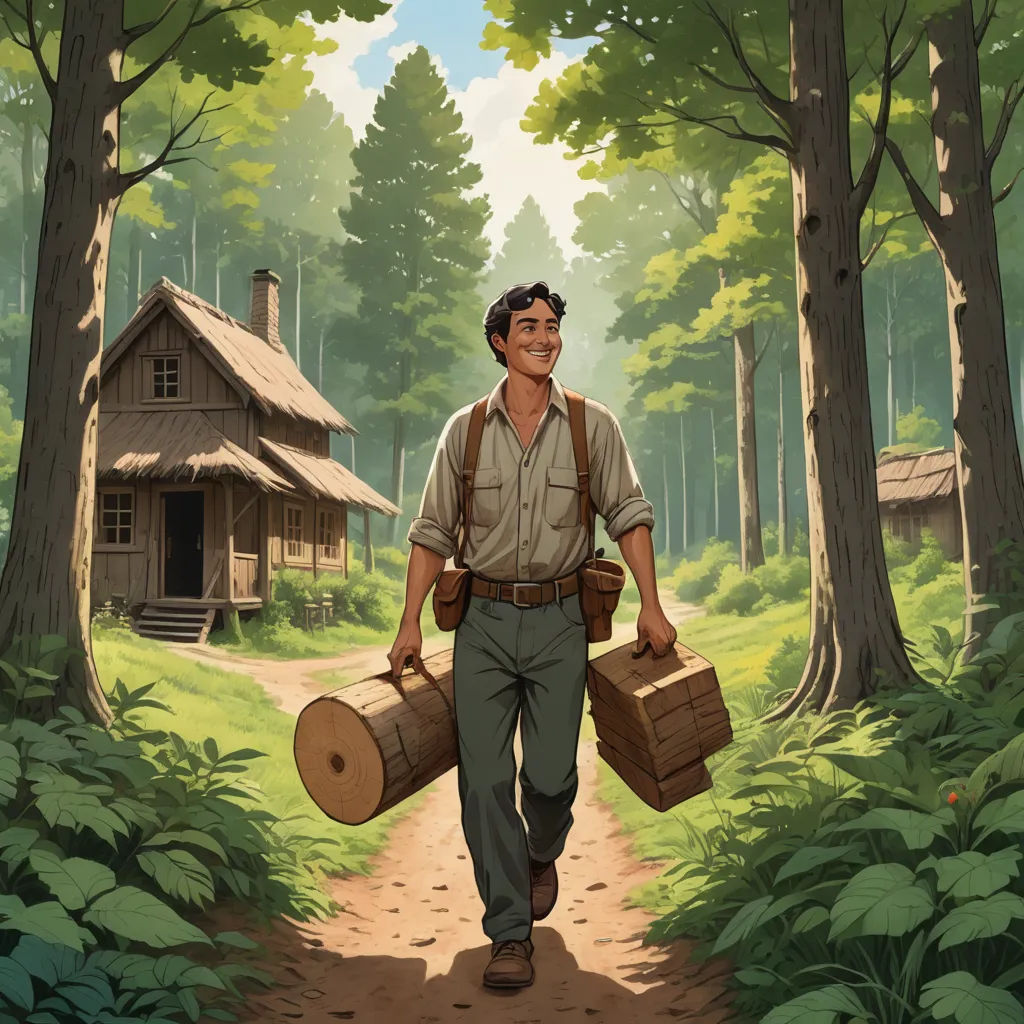
In a small village lived a woodcutter who was known for his honesty and innocence. He led a simple life, surviving by chopping trees and selling the wood. On this particular day, he set out for the forest to gather wood for the day.

He reached a serene lake surrounded by towering trees. Spotting a suitable tree, he began to chop it. However, as he swung his axe, the grip slipped from his hand, and the axe plunged into the lake.

The woodcutter sat desolately by the lake, wondering how he would survive without his axe. His honesty and simplicity had always been loved by the gods, and on seeing his plight, they decided to help him.

An enchanting fairy emerged from the lake, holding a golden axe. She asked the woodcutter if this was his lost axe. The woodcutter, with his honest heart, denied that the golden axe was his.

The fairy then brought forth a silver axe and asked him again. Despite the temptation, the woodcutter again denied that the silver axe was his. The fairy admired his honesty.

She finally retrieved the simple woodcutter's axe, which the woodcutter happily identified as his. Moved by his honesty, the fairy decided to reward him and gave him all three axes.

Overjoyed, the woodcutter returned to his village. He couldn't contain his excitement and shared his extraordinary encounter with his neighbor, who listened with growing envy.

The neighbor, blinded by greed, decided to test his own luck. The following day, he went to the same lake and intentionally threw his axe into the water, hoping to trick the fairy.

Just as with the woodcutter, the fairy appeared holding a golden axe and asked the neighbor if it was his. Blinded by greed, the neighbor quickly claimed the golden axe as his own.

But the fairy, being wise and just, saw through his lies. She taught him a lesson by not only denying him the golden axe but also refusing to return his own axe, leaving him with nothing.
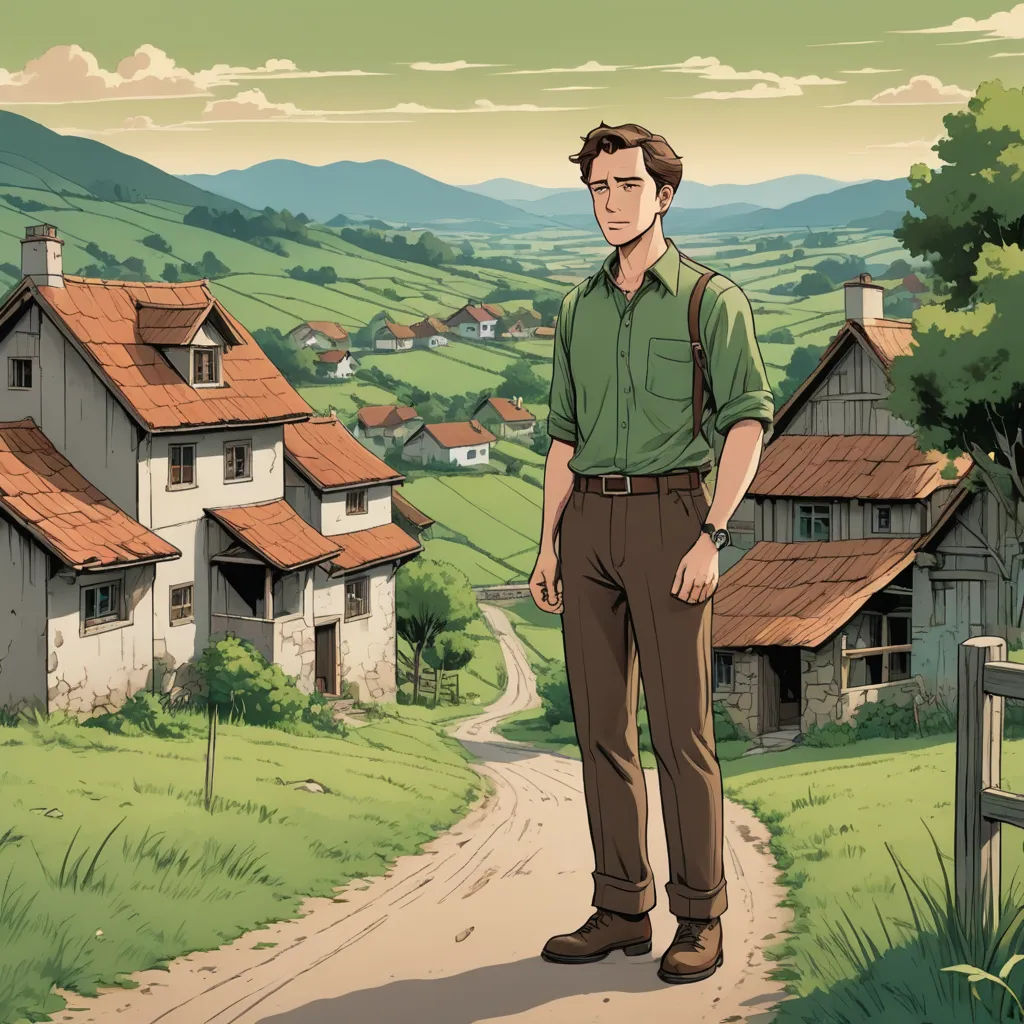
The neighbor returned to the village, crying, without an axe. He had lost his only means of livelihood due to his greed and dishonesty.
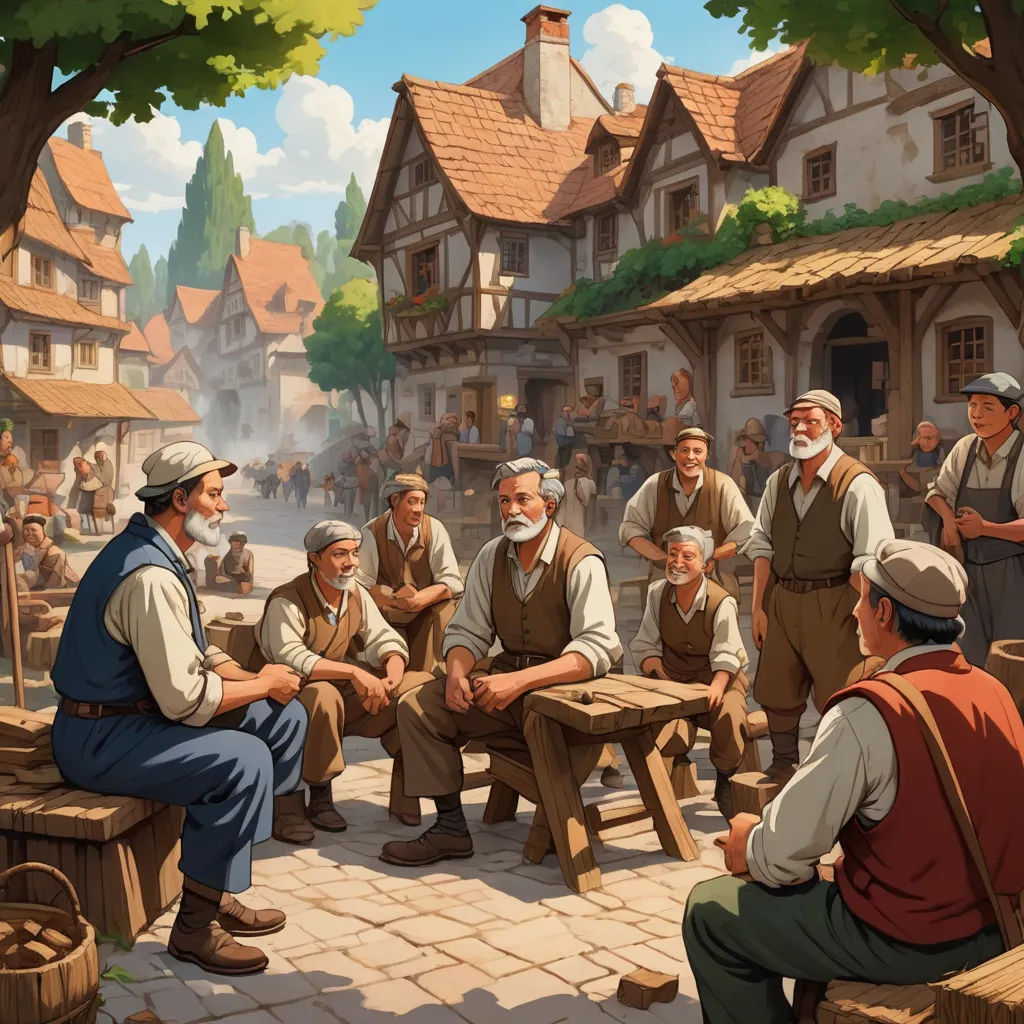
The villagers came to know about the neighbor's misfortune. They realized the importance of honesty and the consequences of greed and lies. The woodcutter's story served as a valuable lesson for everyone.

The woodcutter, with his three axes, was able to provide for his family more comfortably. His honesty had brought him fortune, and he continued to live his humble life, respected by all.

The neighbor, on the other hand, had to suffer the consequences of his dishonesty. He had to beg for work and learned the hard way that dishonesty never pays.
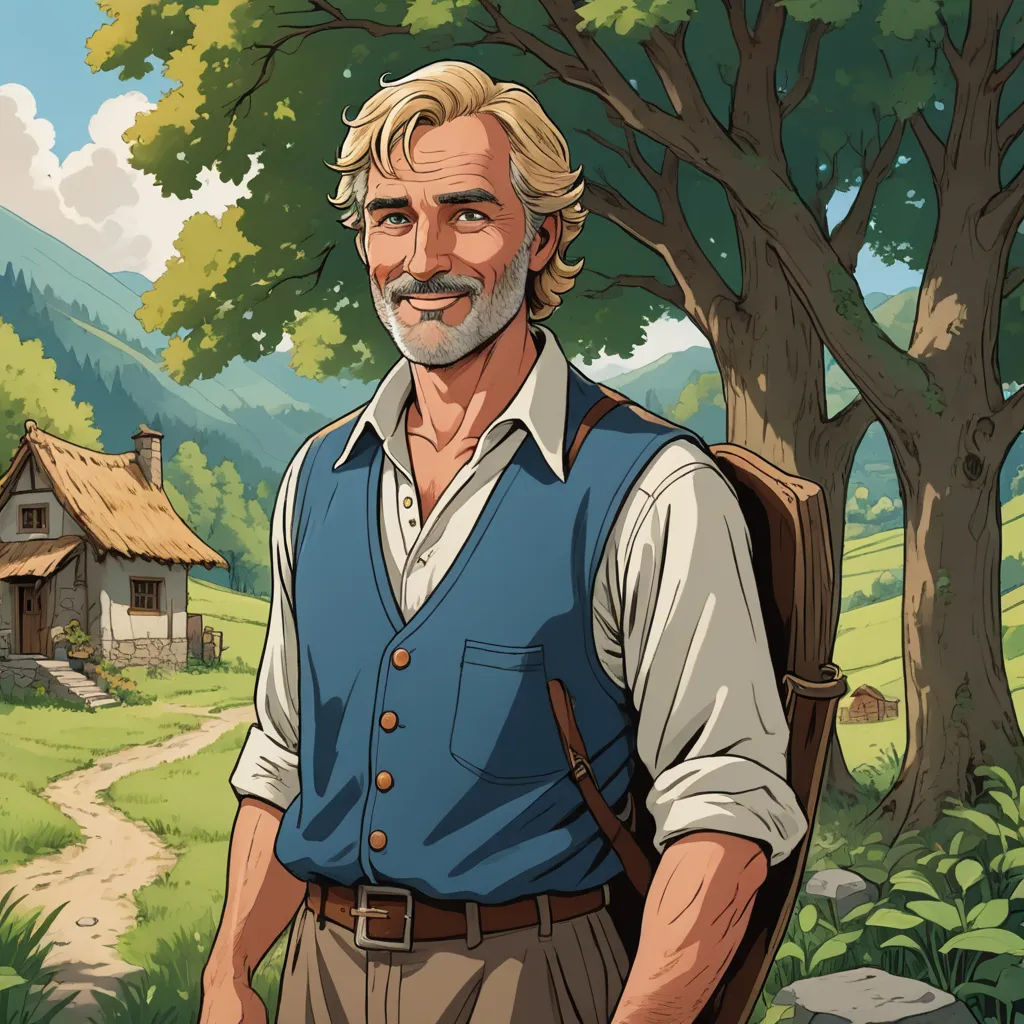
The story of the woodcutter and the fairy spread far and wide, teaching everyone about the virtues of honesty and the perils of greed. The villagers lived with this lesson etched in their hearts.
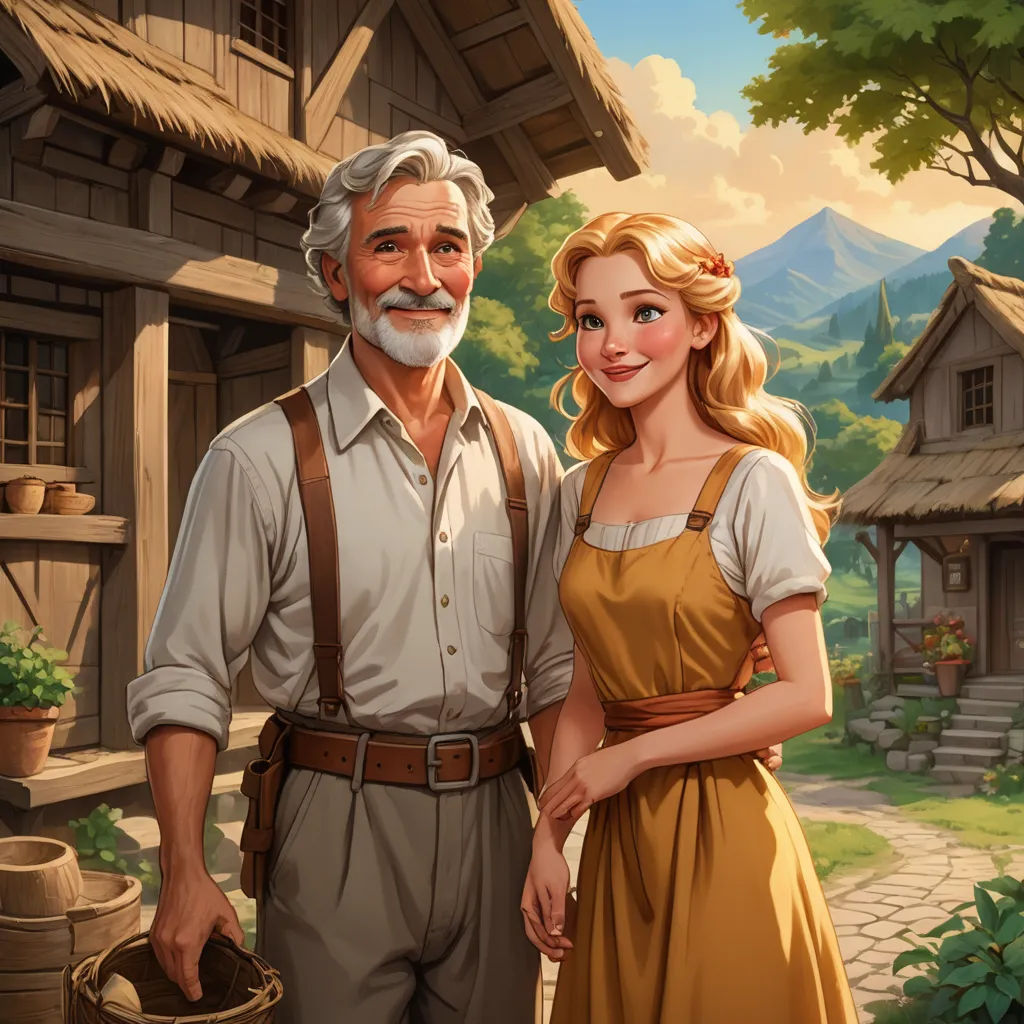
Over time, the woodcutter grew old, but his story remained fresh in the hearts of the villagers. The fairy's reward and the neighbor's punishment served as a constant reminder to stay honest and humble.
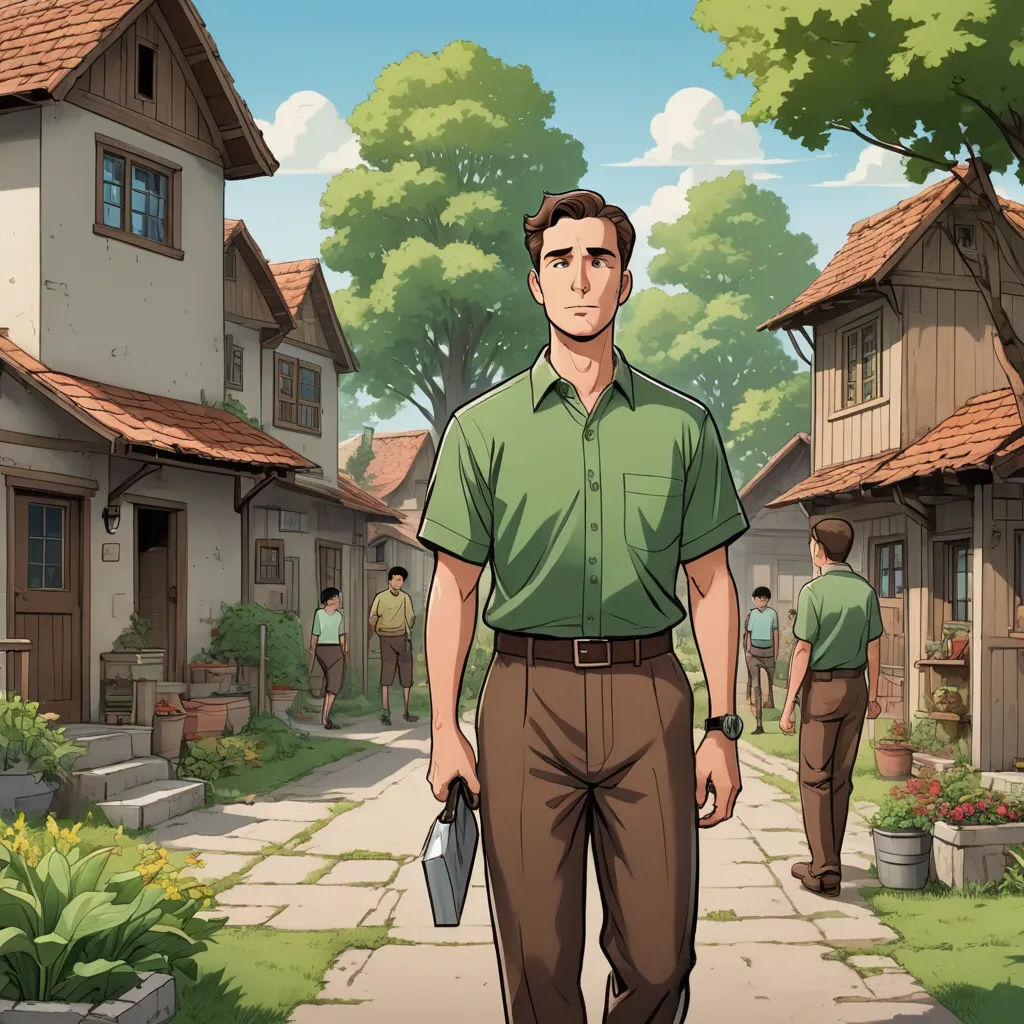
The neighbor eventually redeemed himself by working hard and living honestly, but his past actions served as a lifelong lesson for him and the villagers.

The village continued to thrive, and the story of the woodcutter and the fairy was passed down from generation to generation. The story served as a moral compass, guiding the villagers in their lives.
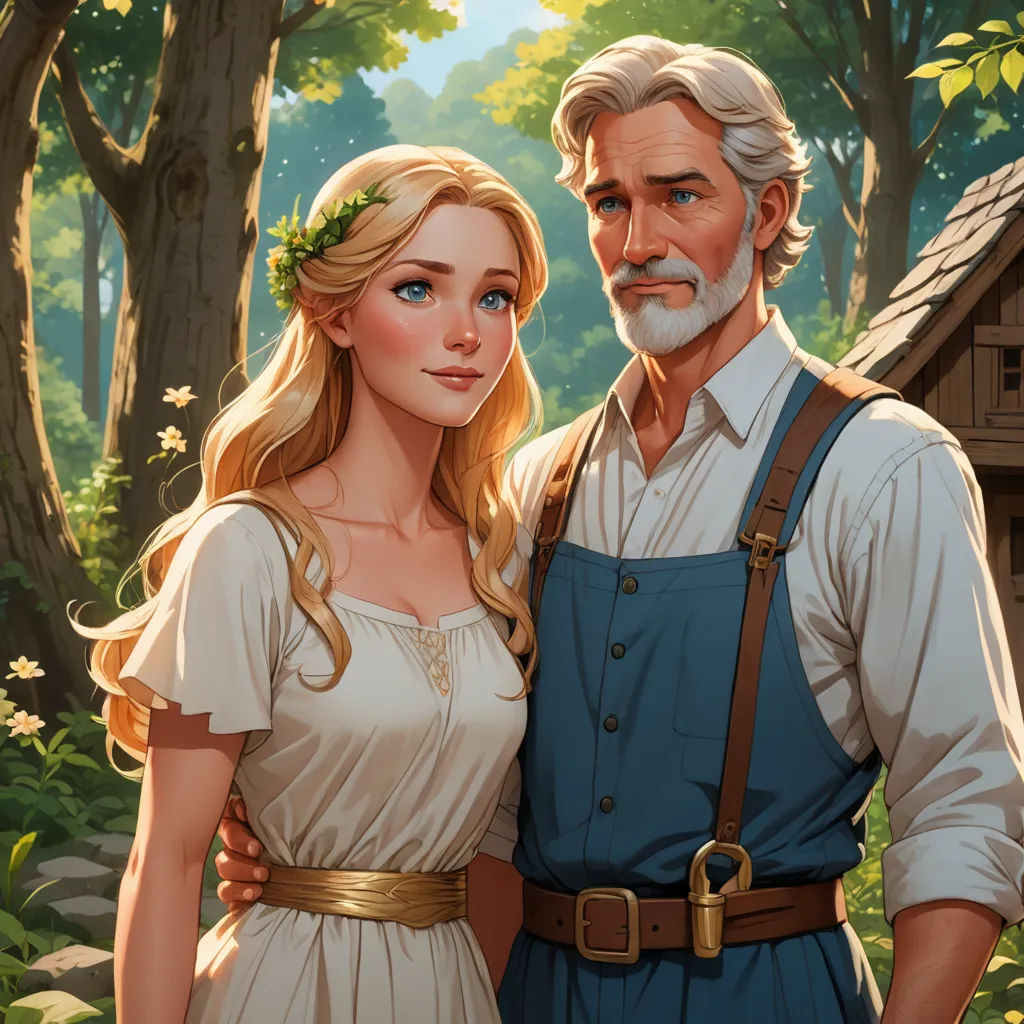
The woodcutter's honesty and the fairy's justice had become a part of the village's legacy. It was a tale that reminded everyone that honesty always pays, and deceit only leads to downfall.

And so, the village lived in harmony, and the story of the woodcutter and the fairy continued to inspire honesty and discourage greed. The tale was a testament to the power of truth and the perils of dishonesty.
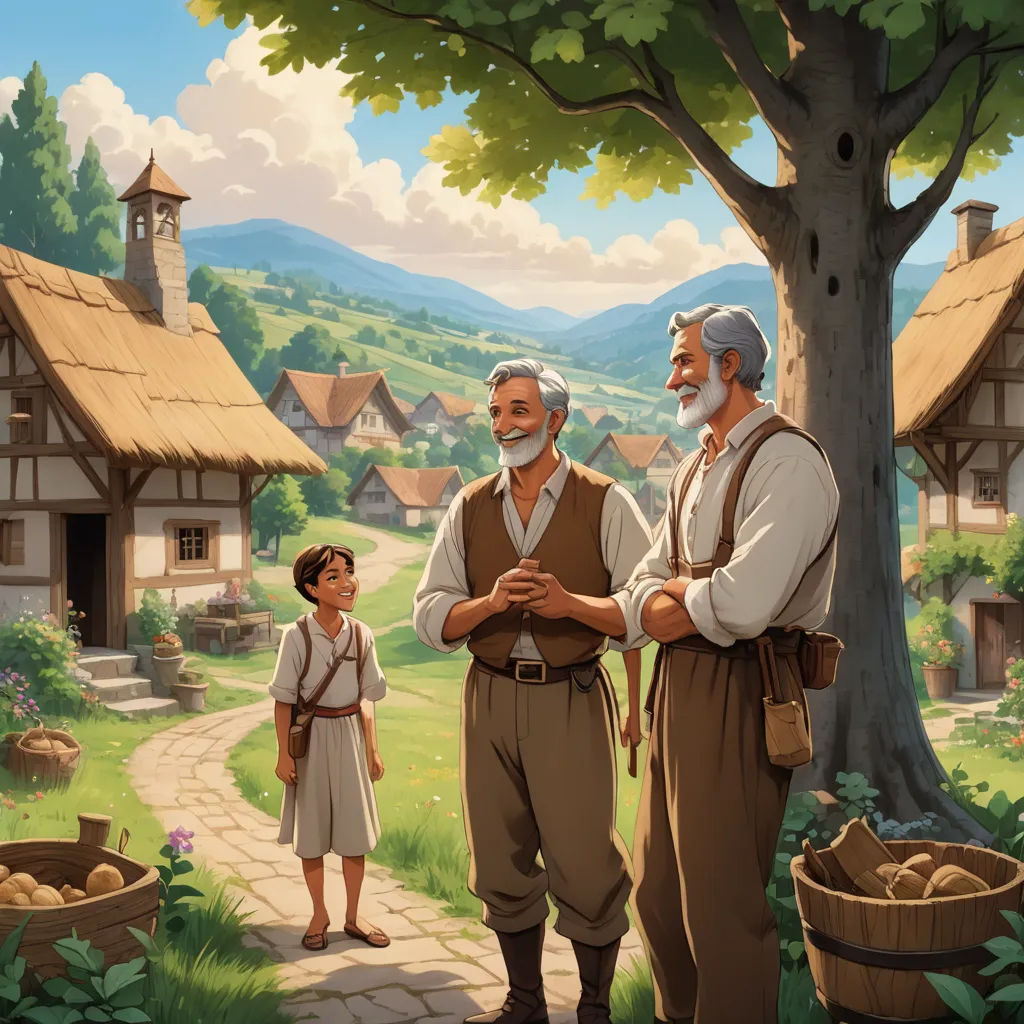
The woodcutter's tale was not just a story; it was a life lesson. It was a reminder that honesty is the best policy and that greed only leads to ruin. The villagers lived by this lesson, ensuring a peaceful and harmonious life.
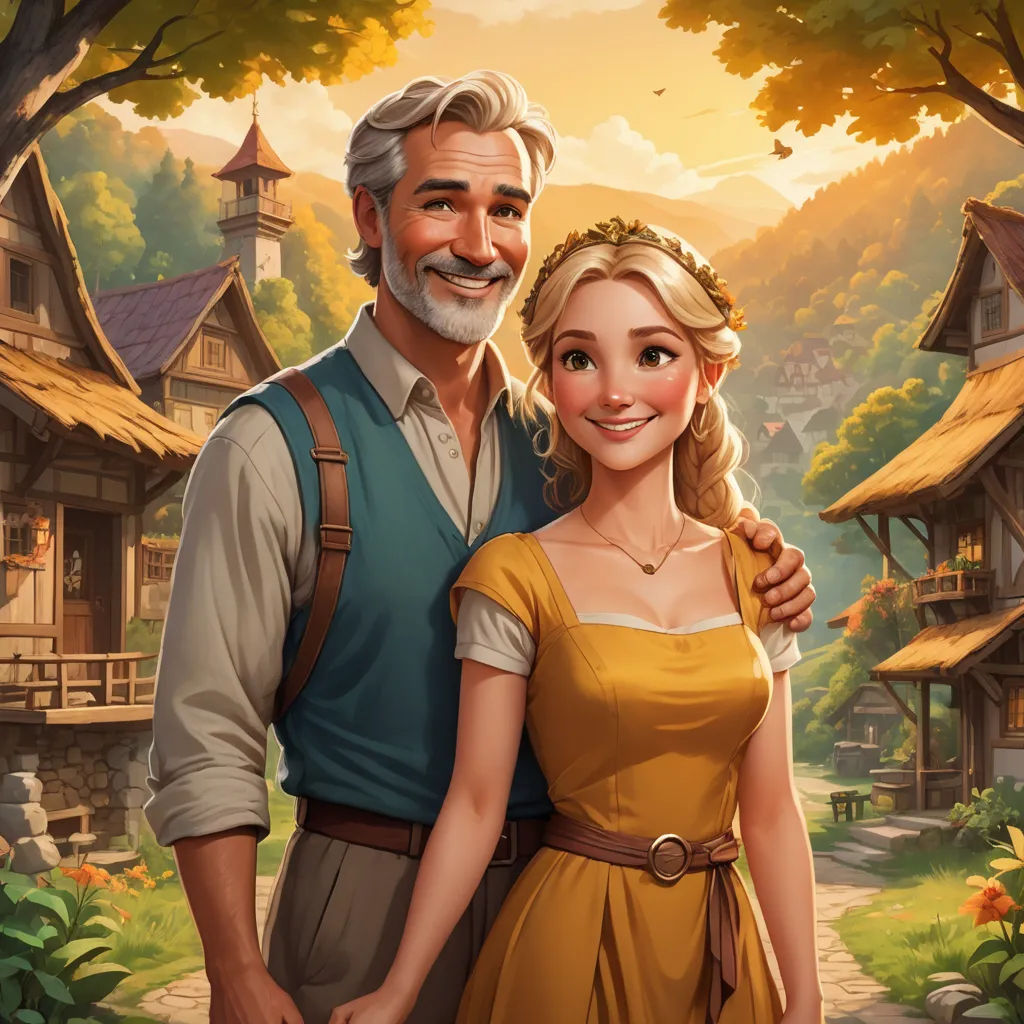
The legacy of the woodcutter and the fairy lived on, shaping the character of the villagers. It was a simple story, yet it held a profound message about the virtues of honesty and the consequences of deceit.
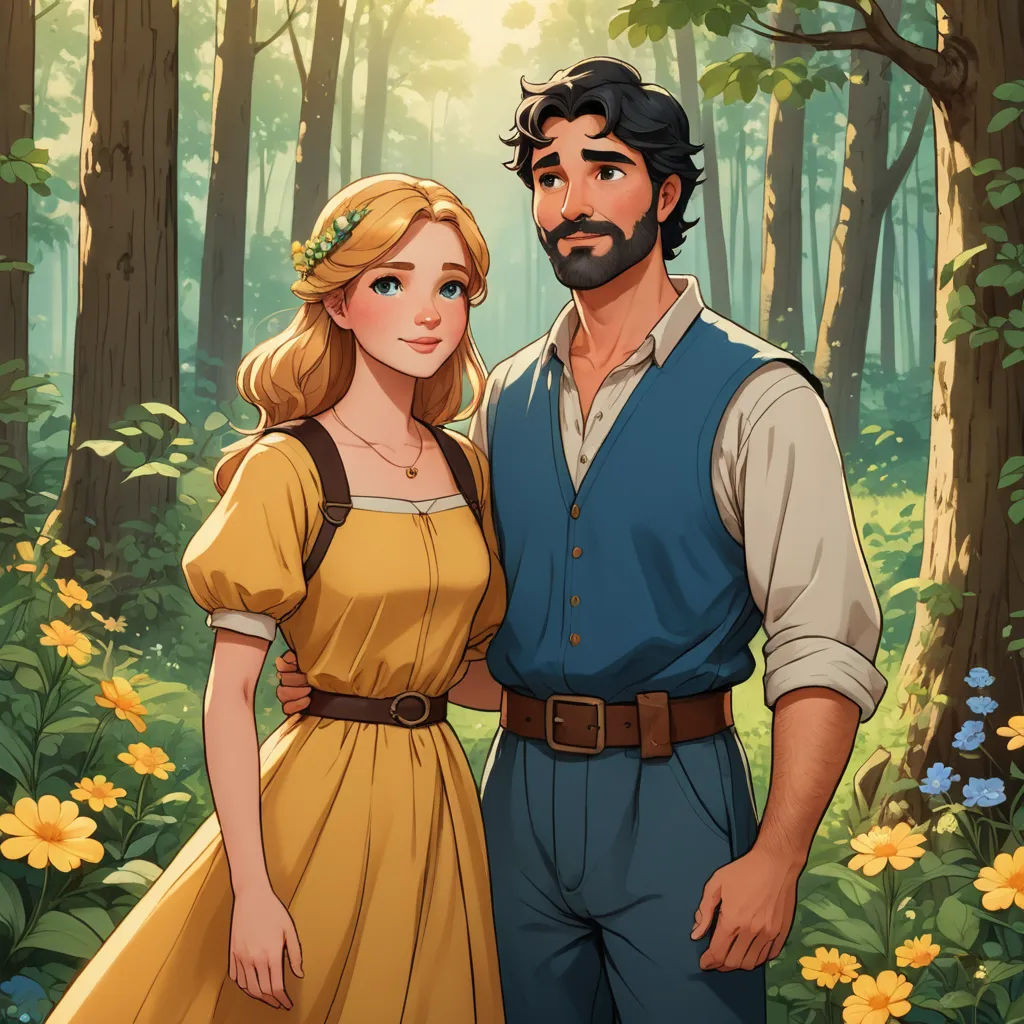
Thus, the tale of the honest woodcutter and the just fairy became an integral part of the village's heritage, reminding everyone to lead a life of honesty, humility, and integrity.
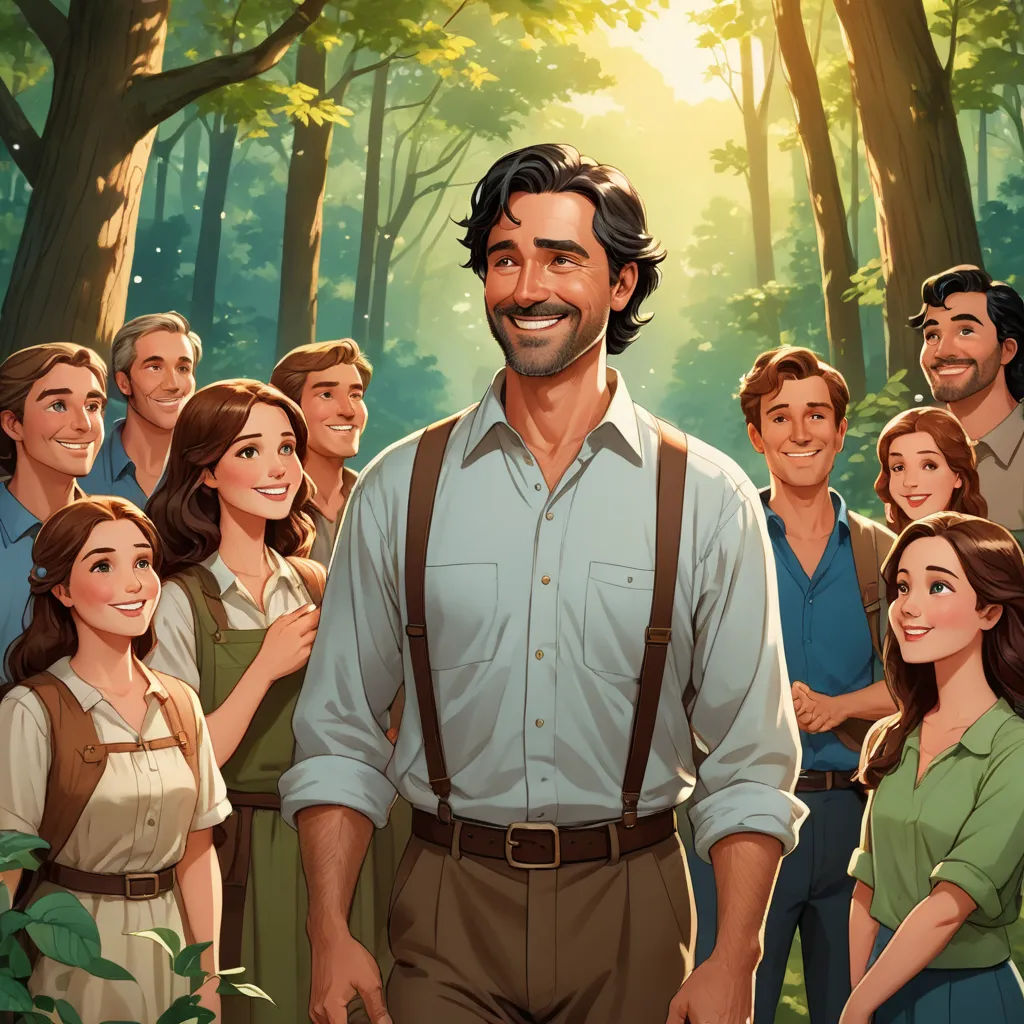
In the end, the woodcutter's tale taught everyone that honesty is a virtue that is always rewarded, and dishonesty, no matter how tempting, always comes with a price.
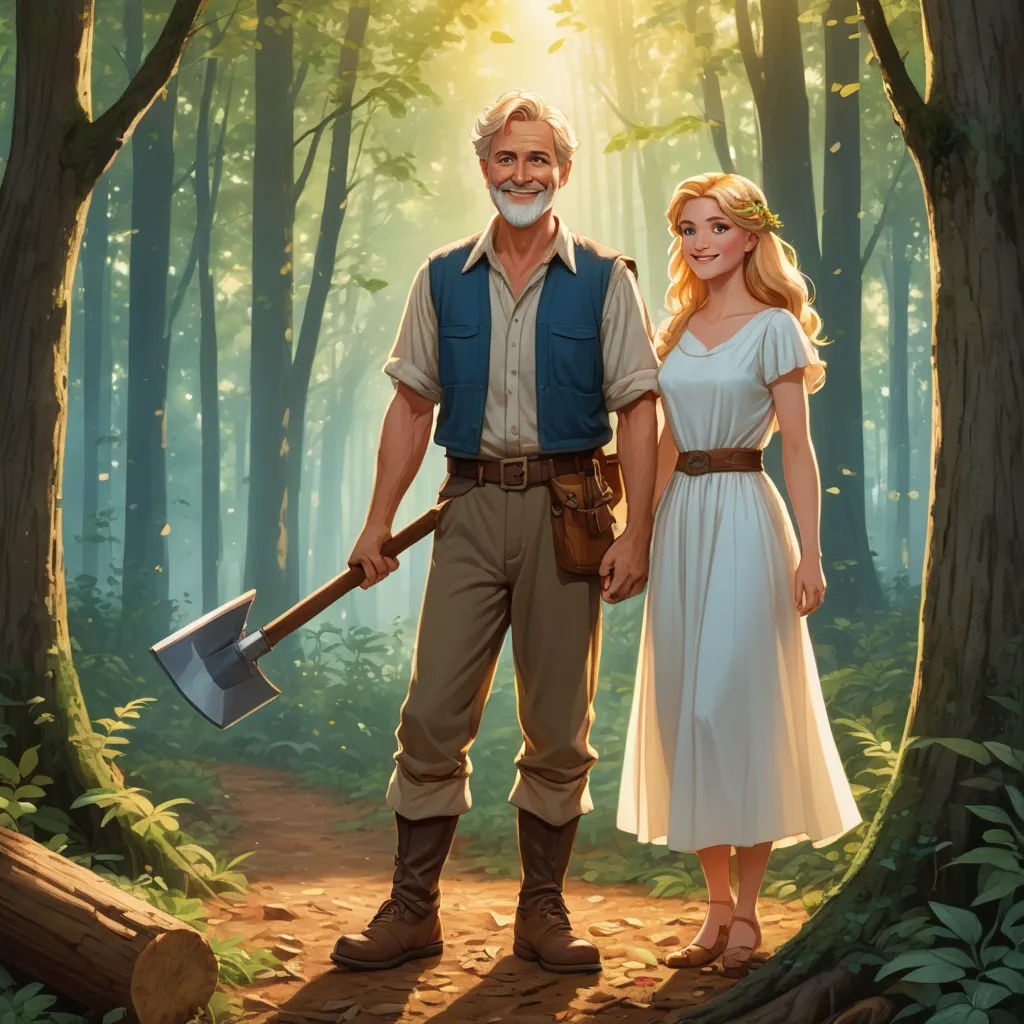
It's a timeless lesson that remains relevant. The tale of the woodcutter and the fairy is a beacon of truth, reminding us all that honesty is indeed the best policy.